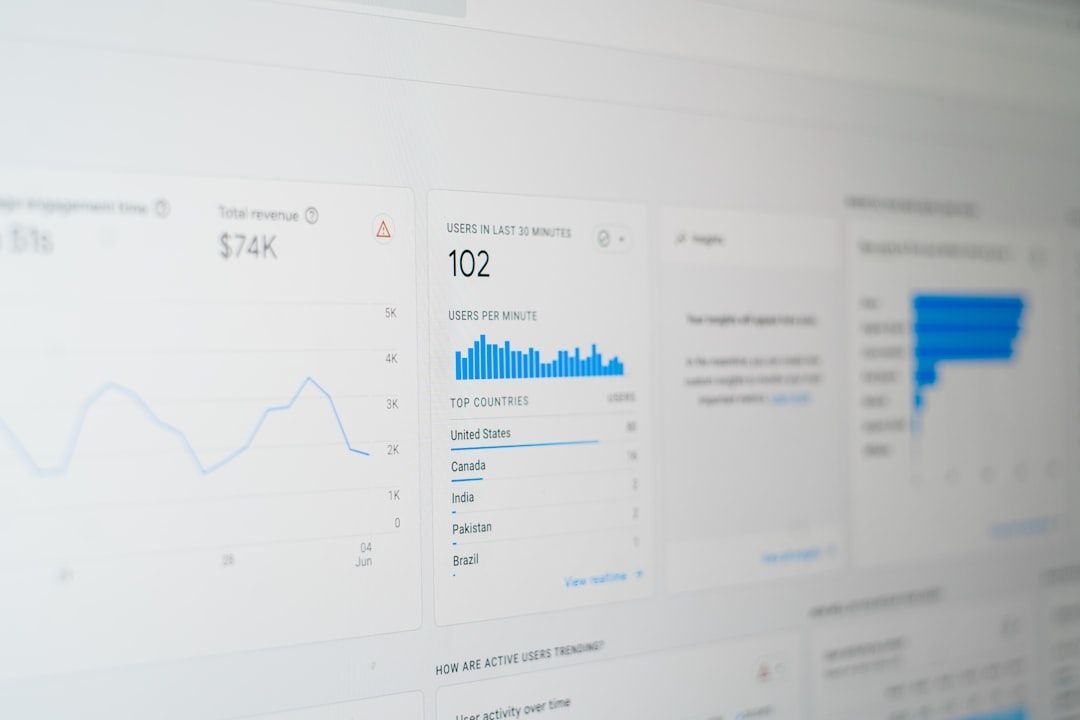Websites That Work Wonders for Small Businesses
Why Small Business Websites Are Essential for Success
Small business websites are no longer optional – they're the foundation of modern business success. Whether you're a local service provider or an online retailer, your website serves as your digital storefront, working 24/7 to attract customers and build trust.
Key benefits of small business websites:
- Build credibility – 62% of people avoid businesses without websites
- Generate leads – Convert visitors into paying customers
- Expand reach – Be found by customers searching online
- Save money – More cost-effective than traditional advertising
- Work around the clock – Never close, always available
The numbers don't lie. Research shows that 50% of consumers judge a company based on website design alone. Even more striking, when page load time increases from one to three seconds, bounce rates jump by 32%.
Small businesses that invest in professional websites see real results. They build authority in their markets, capture leads through contact forms, and create trust through testimonials and social proof. The best part? Modern website builders make it possible to create stunning sites without coding knowledge.
I'm Joseph Lopez, and through my work with Number 2 Club, I've helped numerous small businesses establish their online presence and grow through effective small business websites. My experience spans everything from simple service sites to complex e-commerce platforms, giving me deep insight into what works for different business models.
Why Small Business Websites Matter & What They Deliver
Think of your website as your business's hardest-working employee. It never calls in sick, never takes vacation, and works around the clock to represent your brand. When potential customers search for businesses like yours at 2 AM or during their lunch break, your small business websites are there to make that crucial first impression.
Your website establishes real authority in your industry unlike social media profiles. While social platforms are great for engagement, they're rented space where algorithms control who sees your content. Your website is digital real estate that you own completely.
The 24/7 presence factor transforms how you do business. While you're sleeping, your website continues answering questions, showcasing your work, and processing orders. Trust becomes tangible through customer testimonials, professional photos, clear contact information, and secure payment processing. Here's something that might surprise you: the lack of an online presence is often seen as a warning sign , with many consumers actively avoiding businesses they can't research online.
Online booking systems and contact forms turn casual browsers into actual customers. Instead of playing phone tag, customers can schedule appointments, request quotes, or make purchases whenever convenient. E-commerce capabilities open up revenue streams that weren't possible before, while SEO visibility works like a customer magnet that gets stronger over time.
Big Benefits of Small Business Websites
Branding consistency across your website creates recognition that sticks in people's minds. Lead generation becomes systematic rather than hoping the phone will ring. Cost-effective marketing through your website delivers returns for years after your initial investment. Analytics provide insights that were impossible in traditional marketing.

Small Business Websites That Inspire
Great small business websites share certain qualities that make visitors want to stick around and eventually become customers.
The People vs. Coffee shows how a simple café can create an engaging online presence with inviting imagery and clear messaging. Bowery demonstrates how businesses with a mission can communicate their values effectively through clean design and compelling visuals. Magic Spoon transforms breakfast cereal into an experience worth talking about with playful design and strategic customer reviews. Casa Mami exemplifies how hospitality businesses can showcase their unique character online.
These examples share important elements: clear value propositions, easy navigation, compelling visuals, and calls-to-action that feel natural rather than pushy.
10 Must-Have Features for High-Performing Sites
Your small business website needs more than just good looks to succeed. These ten features drive visitors to become customers.
Clear calls-to-action tell visitors exactly what you want them to do next. Make these buttons impossible to miss with bright colors and strategic placement. Fast loading times are crucial - when your site takes longer than three seconds to load, you lose nearly a third of potential customers.
Responsive design ensures your site looks amazing on mobile devices where most people browse. Intuitive navigation means visitors can find what they need without confusion. SSL security provides that padlock icon in the address bar - without it, browsers warn people your site isn't safe.
Contact forms work as your digital sales team 24/7. Make them easy to fill out by only asking for necessary information. Social sharing buttons turn visitors into your marketing team.
Your blogging hub shows expertise while helping Google understand your business. Online payment processing removes barriers between interest and purchase. Customer testimonials build trust through real stories from happy customers.

Feature Checklist for Service-Based Sites
Booking calendars eliminate phone tag entirely. Customers can see availability and claim their spot instantly. Live chat catches visitors when they're most interested, even simple chatbots can answer basic questions. Map embeds show your location clearly and provide one-click directions.
Feature Checklist for Ecommerce Sites
Product search becomes essential with multiple items. Cart recovery follows up with customers who abandoned purchases - often recovering 15-20% of abandoned carts. Multiple payment gateways meet customers where they are financially, reducing payment friction.
Building, Budgeting & Managing Your Site
Creating your small business website doesn't have to feel overwhelming. The key is understanding your options and making smart decisions that fit both your budget and comfort level.
Drag-and-drop builders are perfect if you're not tech-savvy. These platforms provide templates, hosting, and basic features without requiring coding knowledge. No-code solutions now offer sophisticated features like e-commerce capabilities, appointment booking, and marketing automation.
The big question: DIY or hire a professional? If you need a straightforward site with standard features and you're comfortable learning new tools, DIY works great. For complex requirements or tight timelines, professional help often pays for itself.
Maintenance requirements don't disappear after launch. Your site needs regular backups, security updates, fresh content, and performance monitoring. Hosting and domain decisions matter - cheap hosting that crashes can cost sales.
If you're considering WordPress, our guide on the Easiest WordPress Page Builder breaks down creating professional sites without technical headaches.
| Approach | Cost Range | Timeline | Best For |
|---|---|---|---|
| DIY Builder | $29-159/month | 1-4 weeks | Simple sites, tight budgets |
| Professional Design | $1,000-10,000+ | 4-12 weeks | Complex needs, custom features |
| Hybrid Approach | $500-3,000 | 2-8 weeks | Professional look, moderate budget |
Planning & Timeline for Small Business Websites
Site mapping is making a list of needed pages and figuring out connections. Copywriting always takes longer than expected - start early. Design sprints break big projects into manageable pieces. A launch checklist prevents embarrassing mistakes.
Budget Breakdown: What You'll Spend & Where
Domain fees run $10-50 annually. Hosting plans range from $5-15 monthly for basic needs to more robust options as you grow. Premium apps add powerful features but increase monthly costs. Budget for ongoing support whether you handle it yourself or hire help.
Updating & Growing Without Coding
CMS dashboards are designed for regular people, not programmers. Visual editors let you see changes immediately. Template switching refreshes your site's look without starting over.

Driving Traffic, Trust & Growth
Getting your small business website built is just the first step. The real magic happens when you attract the right visitors, earn their trust, and turn them into loyal customers.
SEO fundamentals help you get found when people search for what you offer. Keyword research reveals what potential customers actually type into Google - they might search "car won't start near me" instead of "automotive repair." Building backlinks from reputable websites signals trustworthiness to search engines.
Here's a sobering fact: bounce rates rise by 32% when page load times increase from one to three seconds. Speed optimization is essential for keeping people engaged.
Email marketing integration transforms your website into a lead-generating machine. Social media integration extends your reach, while analytics provide insights for continuous improvement. Local search optimization becomes crucial for businesses serving specific geographic areas.
For proven content strategies, our comprehensive guide offers specific techniques: Tips for Writing Great Posts That Increase Your Site Traffic.
SEO Basics for Small Business Websites
On-page tags like title tags and meta descriptions help search engines understand your content. Schema markup gives search engines extra business information. Internal linking connects related pages, creating pathways for visitors and search engines.
Converting Visitors into Customers
Your value proposition should be crystal clear within seconds. A/B testing reveals which elements drive better results. Trust badges reduce anxiety about online purchases. Remarketing campaigns help you stay connected with visitors who weren't ready to buy initially.
Keeping Visitors Coming Back
Regular blog updates give visitors reasons to return. Newsletter subscriptions create direct communication channels. Loyalty programs work for service providers through referral programs and exclusive member benefits.
For specific engagement techniques: Keep in Touch with Site Visitors and Boost Loyalty.
Frequently Asked Questions about Small Business Websites
Let me answer the most common questions from business owners considering their first website or looking to upgrade.
How much does it cost to build and maintain a small business website?
DIY website builders offer the most budget-friendly option at $29-159 monthly for premium plans including custom domains, templates, and advanced features.
Professional development ranges from $1,000 to over $10,000. Most small business websites fall around $2,500-5,000 for professional design and development.
Ongoing costs include hosting fees($5-50 monthly), domain renewals($10-50 annually), and premium plugins($10-100+ monthly). Budget at least $500-1,000 annually for basic maintenance and updates.
How long does it take to create one from scratch?
Simple websites using DIY builders can launch within hours or days if you're prepared, though most business owners spend 1-4 weeks refining everything before launch.
Professional development projects usually require 4-12 weeks from consultation to launch. The secret to faster launches? Preparation makes all the difference. Having content written and requirements defined prevents delays.
Which website builder is best for my business goals?
E-commerce businesses need robust selling capabilities including inventory management, multiple payment gateways, and abandoned cart recovery.
Service-based businesses benefit from appointment booking, contact forms, and portfolio displays.
Content-heavy businesses need strong blogging features, SEO tools, and media management.
Most modern website builders can handle typical small business websites effectively. Focus on features you'll actually use rather than getting overwhelmed by extensive feature lists.

Conclusion
Your journey with small business websites doesn't end at launch - it's just the beginning of something incredible. Think of your website as a digital employee who never calls in sick, never takes vacation, and works around the clock to grow your business. Pretty amazing when you put it that way, right?
The beauty of scalable growth means your website evolves alongside your business dreams. Start with a simple site showcasing your core services, then gradually add online booking, e-commerce functionality, or advanced marketing features as your needs expand. You're not locked into today's vision - your site can transform as your business flourishes.
Unlike that expensive radio ad that stops working the moment it ends, your website becomes more valuable with each passing month. Search engines reward established sites with better rankings. Customers begin recognizing your brand. Your content library grows into a treasure trove of helpful resources that attract new visitors daily.
This long-term asset appreciation makes small business websites one of the smartest investments you'll ever make. While other marketing expenses drain your budget month after month, your website keeps delivering returns year after year.
Your next steps are refreshingly simple. Define what success looks like for your business. Choose the approach that fits your comfort level and budget. Then take that first step - because a good website launched today beats a perfect website that never sees the light of day.
Here at Number 2 Club, we've watched countless businesses transform their fortunes through strategic web presence. Whether you're serving customers in Litchfield Park, Goodyear, Verrado, or Buckeye, we understand the unique challenges facing local businesses in our community.
Ready to turn your website dreams into reality? Contact us today for a conversation about creating a tailor-made website plan that actually fits your goals and budget. Let's build something that makes you proud to share your web address with everyone you meet.












